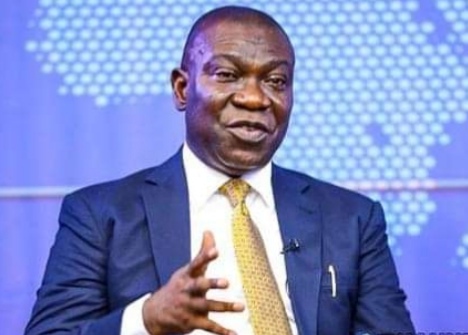The South East deserves an extra state to match up with other regions in the country, especially in the areas of governance and distribution of resources, among others.
Former Deputy Senate President, Ike Ekweremadu, made the demand during a programme ‘Open Square’ which aired on Channels Television on Saturday.
He decried the ratio of lawmakers from the region to those from other geopolitical zones, saying the situation was affecting the South East representation in the National Assembly.
“The number is lopsided because of the way the states were created,” the lawmaker said. “Right now, South East has just five states when others have seven and six. With the Senate of three senators per state, we have just 15, some have 18 and some have 21.
“When it comes to voting, even in terms of resources distribution, we are short-changed. If you go to the House of Representatives, it is a similar thing. I believe that the fair thing to do is for the country to agree for us to have an extra state for the South East, so that it will enable us to match with the rest of the country in terms of opportunity at the National Assembly.”
As of when it gained independence in 1960, Nigeria was a Federal State with three regions – northern, western, and eastern, before an additional mid-western region was created in 1963.
These regions were replaced by 12 states in 1967 as a result of military decree while seven more states were created nine years later, making a total of 19.
By 1991, the nation already has 21 states and the Federal Capital Territory (FCT), and the number had increased to 30 states and the FCT by 1996, before another development which resulted in the present number of 36 states and the FCT.
While the South East and North West have five and seven states respectively, the North East, North Central, South West, and South South all have six states each.
Call For Equity
Ekweremadu also called for fairness and equity for the region in terms of developing its infrastructure just like other parts of the country.
According to him, his first call is to take side with the people who elected him into office when the issue of conflict of interest arises.
“For you to return to the Assembly, you need to ensure that you will take seriously matters that concern them (the constituents),” the lawmaker said. “Most times, they don’t conflict (national and constituency interests).
“If they do conflict, definitely you have to side the people who you are representing because without the you won’t be where you are. Say you want to construct a rail line from Lagos to Kano which is of national interest anyway because that is a good corridor, but you are not seeing anything happening in the eastern corridor – between Port Harcourt and Maiduguri, there is a conflict.”
“Naturally, I will speak for my people and say if you are spending money for the western corridor, you should also spend for the eastern corridor; if you don’t have money for both of them, then you have to wait.
“Those are very rare times when we have those kinds of issues and that is why we need equity, we need justice, we need fairness for you to have a country that you can say is democratic,” he added










